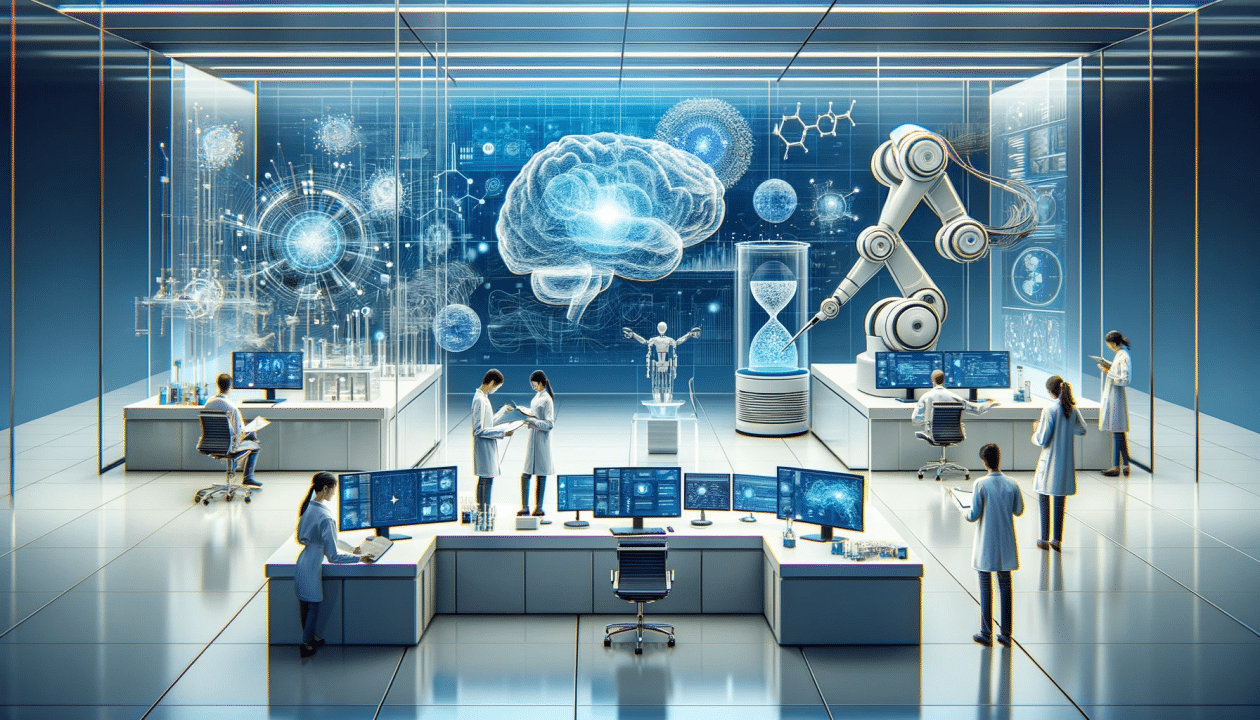AI Transforming University Research: Discover the Impact

In the past decade, the perception of artificial intelligence (AI) has dramatically shifted from a mere tool for video game characters to a transformative force in various sectors, particularly in higher education. Universities are increasingly integrating AI technologies, which are reshaping both academic research and study methodologies. While AI has yet to reach its full potential in everyday life, its impact on educational institutions is profound, offering both significant advantages and notable challenges.
AI’s Role in Enhancing Research and Productivity
AI is revolutionizing the pace and efficiency of research in universities. Traditionally, research processes have been slow and labor-intensive, but AI tools are changing this landscape. By automating data collection, mining, and analysis, AI significantly reduces the time researchers spend on tedious tasks. Platforms like Elicit, SciSpace, and Jenni utilize Natural Language Processing (NLP) to simplify complex texts and identify relevant content, allowing researchers to focus on more critical aspects of their work.
The ability of AI to process vast amounts of data far exceeds human capabilities, enabling researchers to uncover new patterns and insights quickly. This rapid data analysis not only accelerates hypothesis generation but also enhances the overall research output. As a result, the research and innovation cycle has been redefined, allowing for faster advancements in various fields, including genomics and drug discovery. AI’s contributions are proving invaluable, as they facilitate a more dynamic and productive research environment.
The Shotgun Approach to Hypothesis Testing
One of the most notable impacts of AI on university research is the adoption of the “shotgun approach” to hypothesis evaluation. Instead of meticulously selecting a few hypotheses to test, AI can generate and assess multiple hypotheses simultaneously. This method opens up opportunities to explore previously overlooked areas of knowledge and develop new theories.
The shotgun approach is particularly beneficial in fields that involve complex interdependencies, such as economics and climate science. By testing numerous variables at once, researchers can validate or refute theories more efficiently. This innovative method has already shown promise in genomics and drug discovery, where AI-generated datasets have led to significant breakthroughs in understanding biological functions and developing new treatments. The potential for this approach to transform research methodologies across various disciplines is immense.
Transforming Data Analysis and Visualization
Data analysis is a cornerstone of university research, and AI is playing a crucial role in enhancing this process. By utilizing NLP tools, researchers can decipher complex datasets and documents, revealing relationships and insights that traditional methods might miss. This capability allows for a more comprehensive understanding of research topics and facilitates advanced data visualization.
AI-driven software has revolutionized how researchers visualize data, providing a “bird’s eye view” that uncovers intricate patterns and relationships. Fields such as materials science and drug discovery have particularly benefited from AI-assisted data analysis, leading to new insights and directions for research. Additionally, business research has been transformed through psychological analysis, which replicates human behavior more accurately than ever before.
Addressing Ethical Concerns and Responsible Use
As AI tools become more prevalent in academic settings, concerns regarding ethics, authorship, and accuracy have emerged. One significant issue is the potential for AI-generated material to be submitted as original work, raising questions about reliability and academic integrity. The inconsistency of AI outputs, including inaccuracies and “hallucinations,” poses risks for students and researchers alike.
Moreover, there is a growing concern about over-reliance on AI, which may lead to diminished critical thinking and creativity among students. As AI takes on more research tasks, it is essential for educators to emphasize the importance of human judgment and insight in the research process. Universities must develop clear guidelines and policies to ensure responsible AI use, fostering an environment where AI serves as a collaborative partner rather than a replacement for original thought.
Observer Voice is the one stop site for National, International news, Sports, Editor’s Choice, Art/culture contents, Quotes and much more. We also cover historical contents. Historical contents includes World History, Indian History, and what happened today. The website also covers Entertainment across the India and World.
Follow Us on Twitter, Instagram, Facebook, & LinkedIn

